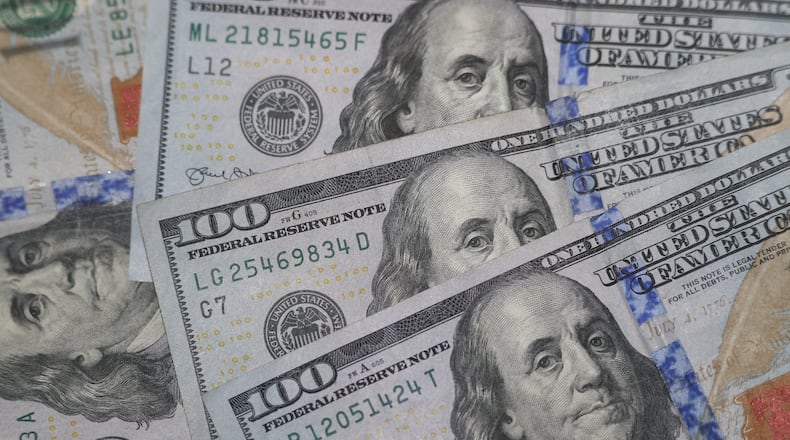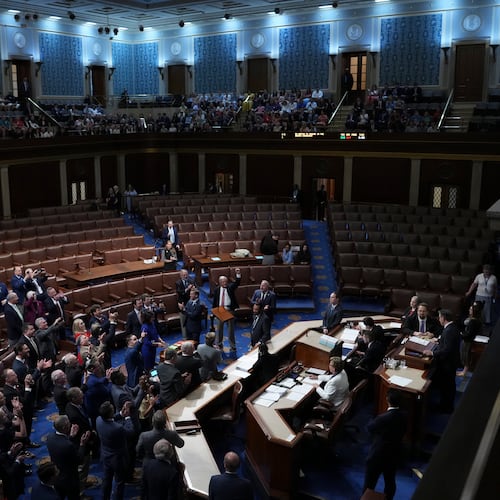This is an unprecedented time for us — socially, economically, and societally. I’d like to offer a few thoughts on the economic recovery effort and the Federal Reserve’s role in this effort.
Foremost, this is a public health crisis. As long as the novel coronavirus is spreading quickly, it will be difficult for the economy to stabilize and then recover. Therefore, a swift, responsible public health response is critical. As Fed Chair Jerome Powell said, the virus will dictate the timeline for an economic rebound.
Much remains unclear, yet we know this: the sharp reduction in commerce will severely stress much of our economy—families, for-profit businesses, nonprofits, and governments — mainly because of cash flow problems and an increasing inability to secure credit.
A key point to remember is that this crisis is different from most economic slowdowns in that it did not result from excessive risk-taking or economic fundamentals deteriorating. Before the pandemic, labor markets were strong and consumers confident. Housing markets and the financial system were generally healthy.
In a sense, the roots of this economic downturn offer hope. If we weather the crisis without lasting damage to those economic fundamentals, then the fundamentals can support a strong recovery. So the Federal Reserve’s multi-pronged efforts to support the economy and financial system during the crisis are designed to minimize long-term financial and economic damage. This is appropriate, in my view.
To be clear, the Federal Reserve is not structured to lend money directly to individuals and firms. (Fiscal policy from Congress has a critical role to play, and I’ll discuss that later.) Rather, we work through financial institutions and financial markets to ensure there is enough liquidity — readily accessible money — to keep the financial system humming.
Ensuring markets can keep credit flowing
If credit freezes up, then layoffs, business closings and family financial hardship will spread and persist. On the other hand, with the proper support, the nation’s households, businesses and nonprofits will be positioned to resume productive economic activity when public health permits.
We learned during the financial crisis of 2008 that dire economic threats call for bold, decisive action. Therefore, as the pandemic triggered an economic emergency, the Fed moved aggressively.
We confronted increasing tension in financial markets by buying bonds and providing liquidity to make sure these markets continue to function. These markets, in fact, were starting to break down. Recent market performance suggests these interventions have, to date, had their intended effect.
We have taken steps, including easing certain regulatory requirements, to encourage banks to focus on customers at this critical time. The Fed also has a program to help banks lend to small businesses that lack the financial reserves to weather many months without revenues.
The Fed reduced the federal funds rate to near zero to provide maximum support for recovery. We also remain in close touch with business and community leaders to identify tension points and accurately direct our ongoing support.
The Atlanta Fed, in particular, has made promoting economic mobility and resilience a strategic priority. And so we are attuned to the pandemic’s economic impact on our most vulnerable citizens. The intelligence we gather will inform Fed actions. After all, fostering the fastest recovery possible is perhaps the best way to help our low- and moderate-income neighbors.
Fiscal policy also critical to recovery
Of course, the Fed’s purview is monetary policy, which has inherent limitations. Fiscal policy has an essential role in mitigating economic harm. In that arena, Congress passed the CARES Act, which some call a stimulus but which I consider more a relief package. No matter how you view it, the legislation is a vital step to bolster a “bridge” to the other side of this economic and public health crisis. Amid a crisis serious enough to prompt the largest number of first-time unemployment claims on record, fiscal relief is a necessary part of the solution.
I get that many Americans don’t understand the intricacies of the Fed’s moves to keep financial markets working. Please know that we are pursuing one overarching goal — to prevent the economy from completely freezing up while public health experts get the virus under control, thus positioning the nation to rebound economically once the health crisis abates.
In closing, let me ask that we please heed the directives of public health officials. That will ensure that this episode is as short as possible. We must also keep an eye out for signs of mental health stress in your communities. This is an unprecedented time, with unimagined risk and uncertainty, and so we need to watch out for each other and show compassion. We are in this together, and we will get through it faster and stronger if we stay together.
For more information on our coronavirus-related resources, visit https://www.frbatlanta.org/news/covid-19
Dr. Raphael W. Bostic is president and chief executive officer of the Federal Reserve Bank of Atlanta.
About the Author
Keep Reading
The Latest
Featured



